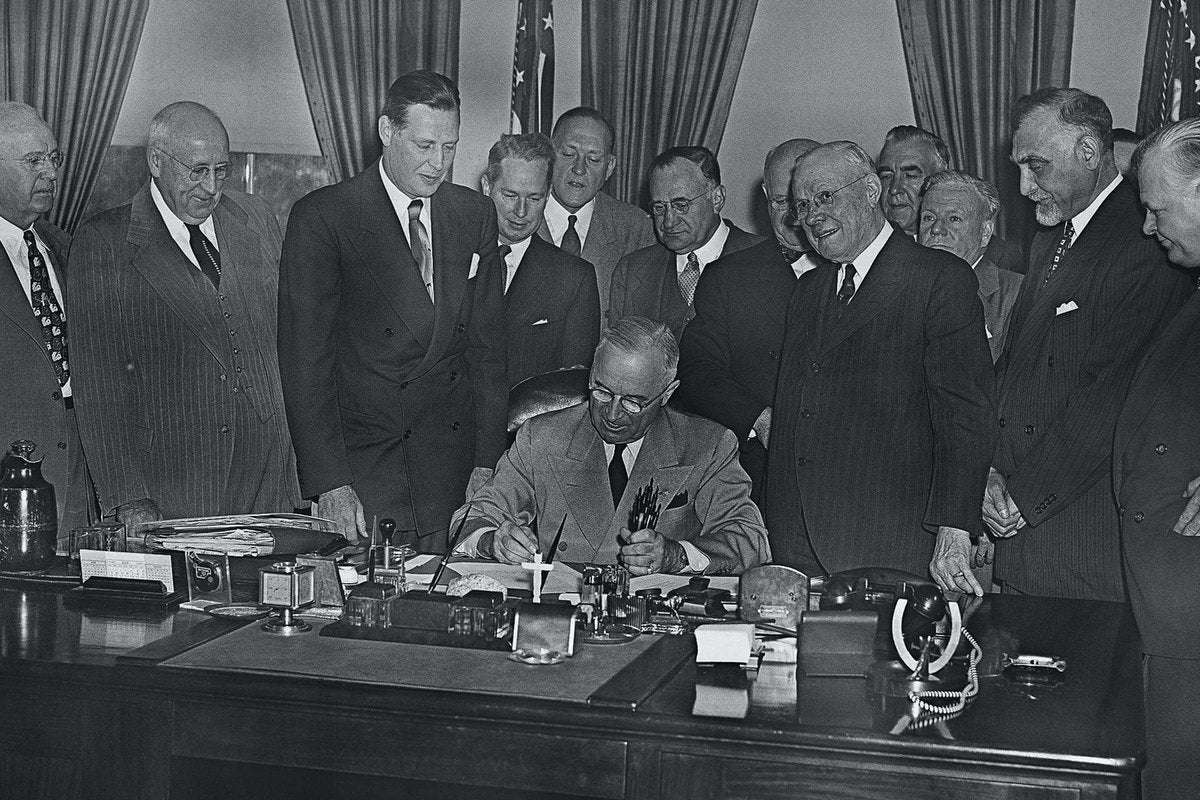The coronavirus pandemic relief bill passed by the House of Representatives this week would raise the federal minimum wage in steps until it reached $15 an hour in 2025. But an increase in the minimum wage has been removed from the Senate’s legislation. At least for now, it is stuck at $7.25. This is bad enough in itself, but even worse is that almost no Americans understand how low we’ve allowed our aspirations to become. Our country’s productivity gains in recent decades should have translated into a minimum wage today of $24 an hour — and by 2025, it should be almost $30. This may sound preposterous. But in fact, U.S. society was once on a path to this destination. We simply chose to step off that path.
From both a moral and practical perspective, the minimum wage should go up in step with the productivity of the U.S. economy — that is, our ever-increasing ability to create more wealth with the same amount of work. Morally, as a country grows richer, everyone should share in the increased wealth. Practically, companies that sell things need lots of people with the money to buy them. We know that this can work because it already did. During the 30 years from the establishment of a minimum wage in 1938 to 1968, Congress repeatedly upped the minimum wage so that it did in fact go up hand in hand with U.S. productivity. By the end of that period, it was worth the equivalent of $12 per hour today. Since 1968, American productivity has substantially increased. Dean Baker, senior economist at the Center for Economic and Policy Research, points out that if the minimum wage had gone up at the same rate, it would now be over $24. At that level, as Baker says, a couple who both worked full time at minimum-wage jobs would take home $96,000 a year. Baker also calculates that by 2025, rising productivity would bring the minimum wage close to $30 an hour.
But instead we’ve gone in the other direction. After the late 1960s, Congress stopped raising the minimum wage in step with productivity. Instead, over the past 50 years, Congress has allowed the minimum wage to plummet in real terms. That is, minimum-wage workers of the past were actually paid more than minimum-wage workers make today — even though today’s workers live in a much richer society. Indeed, since 1950, the hourly minimum wage has almost never been lower than it is now. Of course, 1950 is literally a lifetime ago, and the U.S. is now a completely different country. Our per capita gross domestic product is now four times greater. A UNIVAC computer of the time was 38 feet long, weighed eight tons, and had about 1/1,000,000 of the memory of today’s cheapest iPhone. Yet somehow, everyone working a federal minimum-wage job in 2021 is paid less per hour than the inflation-adjusted $8.25 or so that they would have gotten in 1950. During the past 71 years, the inflation-adjusted minimum wage has only been lower than it is now in 1989 and from 2004 to 2006.
The real value of the congressionally mandated federal minimum wage has fluctuated over the past 71 years. Source: Center for Economic and Policy Research. Chart: Soohee Cho/The Intercept

Neverland1414 on March 6th, 2021 at 01:03 UTC »
Oh you mean back when only one person had to really work to take care of their family, back when we invested in the people and led the world or near the top in, manufacturing, infrastructure, education, science? Taxes were also alot higher for the super rich.
yamaha2000us on March 5th, 2021 at 22:18 UTC »
Minimum wage in the 70’s would buy you 4 Big Macs. Today it’s like 1.8.
Do you know who made minimum wage in the 70’s and 80’s?
High School Kids after school.
babaisyouisbaba on March 5th, 2021 at 21:28 UTC »
Wouldn’t it be easier to just pass a bill increasing the minimum wage and then write in that future adjustments would be tied to inflation (similar to how the tax brackets are updated every year)? Instead we’re constantly having this debate about how long it’s been since the last adjustment.